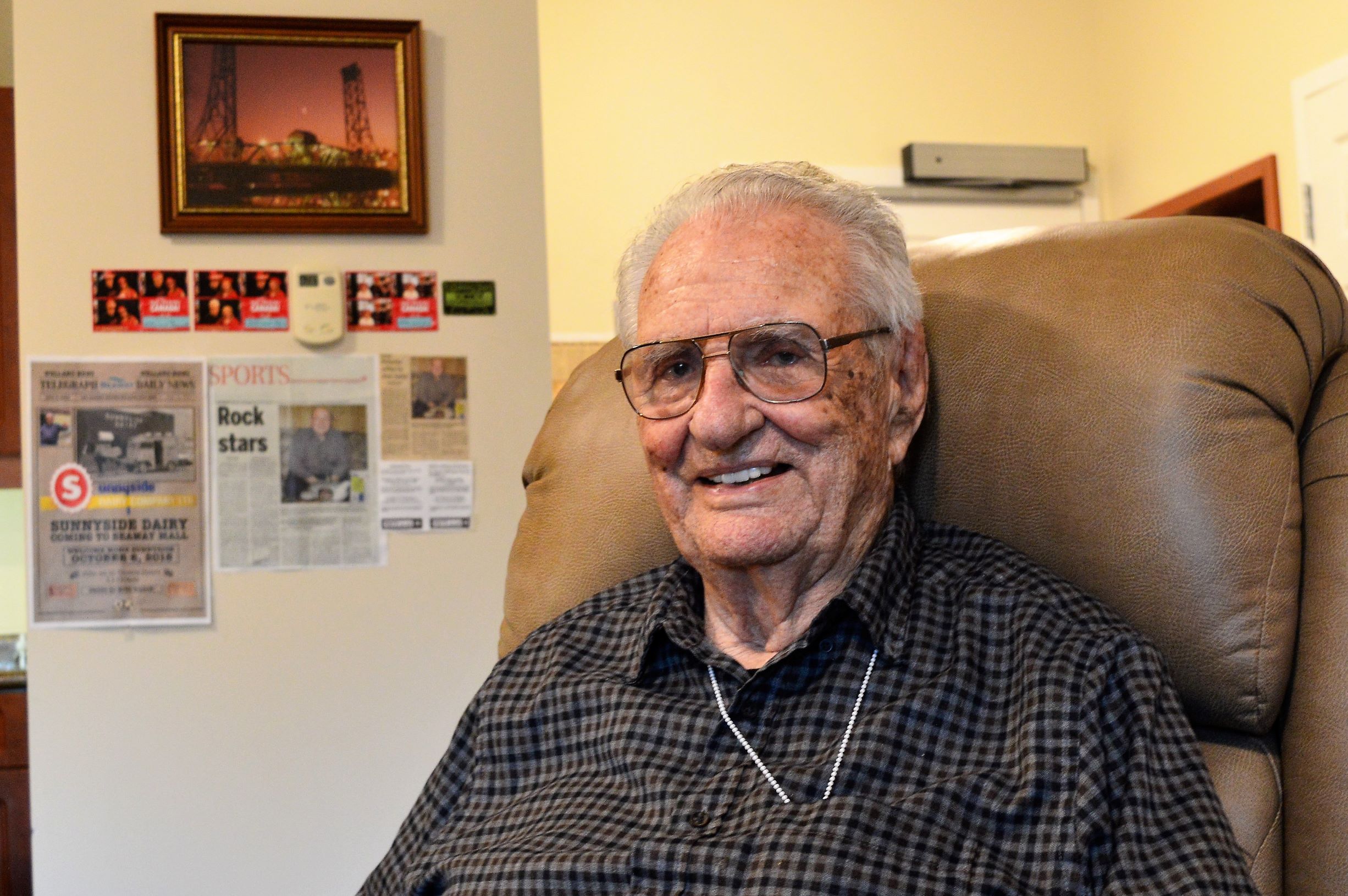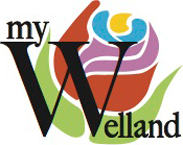GUEST POST via Joe Barkovich fromareportersnotebook
Allan Pietz was always an eager after-dinner speaker.
He strode to the podium with that trademark million-dollar smile lighting his face.
He spoke from prepared notes. Often, those notes were written on lined recipe cards tucked away inside his suit jacket until the time came.
After one of those speeches and while interviewing him for the Tribune, I asked why he wrote his notes on recipe cards. Chuckling, he said the small cards helped him keep remarks brief because it was so easy for him to go on and on.
Allan Ernest Pietz died while in palliative care early in the morning of Friday, April 24, aged 95. His niece, Carolyn Ort, said in a telephone conversation he died from complications of pneumonia, it was not a COVID-19 death. Mr. Pietz would have been 96 on June 18.
I saw him for the last time in 2020. He was outside Seasons Retirement Community in Welland, where he was a resident. We were in a car and he was riding on his scooter so we hooked up with enthusiastic waves. In December 2018, I was in his apartment for a column interview. Mr. Pietz, always a gentleman, always with a sunny style, was effervescent, eager to share memories especially from his time as Welland mayor. He spoke about decades-old events as if they were only yesterday, so sharp was his recall.
Bob Saracino, mayor of Port Colborne from 1977 to 1995 and an alderman before that, said he and Mr. Pietz were friends and allies for years. When Mr. Pietz made a run for chair of regional council in what turned out to be an unsuccessful bid, Saracino was his nominator.
Saracino, for one, remembers Mr. Pietz as the consummate politician.
“He was dedicated for Welland,” he said. “Allan always worked on behalf of the people of Welland and the city.
“His strength was his ability to communicate with people. He had that smile and he was ready to shake your hand. And it was always with sincerity.”
On a lighthearted note, he and Mr. Pietz shared the same birthdate, June 18, although the latter was 13 years older. Saracino would joke about toasting the elder statesman “with a glass of milk”, a reference to Mr. Pietz’s family business, Sunnyside Dairy.
Retired journalist Bob McClellan followed Mr. Pietz through his own interest in municipal politics and his career in the newsroom. McClellan joined the newspaper in 1958, became city editor in 1967 and moved on in 1973.
“When Allan Pietz became a member of Crowland council in 1952, I’m sure no one, including Allan himself, could possibly imagine the ‘game-changing’ events he would become part of for the next half century,” McClellan wrote in an email.
“The amalgamation of Welland and Crowland; the Welland Canal bypass with the massive changes it brought to the city’s infrastructure; the inception of a regional government system which changed Niagara’s political map; the establishment of Welland as a college town are a few of the major changes that occurred in the city in the latter half of the 20th century. And one constant during those times – Allan Pietz was there.”
In McClellan’s opinion, Mr. Pietz will be remembered most for the 14 years he served as mayor, but his career saw him serve in some capacity with several jurisdictions: a councillor and later deputy reeve of Crowland, Welland County council, Niagara Regional council, Member of Parliament for Welland Riding and then another term with the Region. In McClellan’s view, it’s a record of service that may never be matched.
“One reason for his success was the way he kept in touch with the electorate with his friendly persona; in fact it sometimes appeared that he was always on the campaign trail,” McClellan wrote.
It is safe to say Mr. Pietz will certainly be remembered by many for that gift and aura. My earliest memory of him is from the late 1950s, a day he drove a Sunnyside horse-drawn milk wagon down our street in Crowland, perhaps subbing for the regular driver, or maybe for the opportunity of a hands-on-the-reins experience in the family business.
A game of ball hockey was in progress and Mr. Pietz was ecstatic to join in the fray, milk wagon stopped and hockey stick in hand.
He stayed five minutes, maybe 10, checking, passing, shooting. He knew some of us by name, perhaps an early sign of that consummate politician in the making? And hard not to notice, and never to be forgotten, was a million-dollar-smile lighting his face.




















